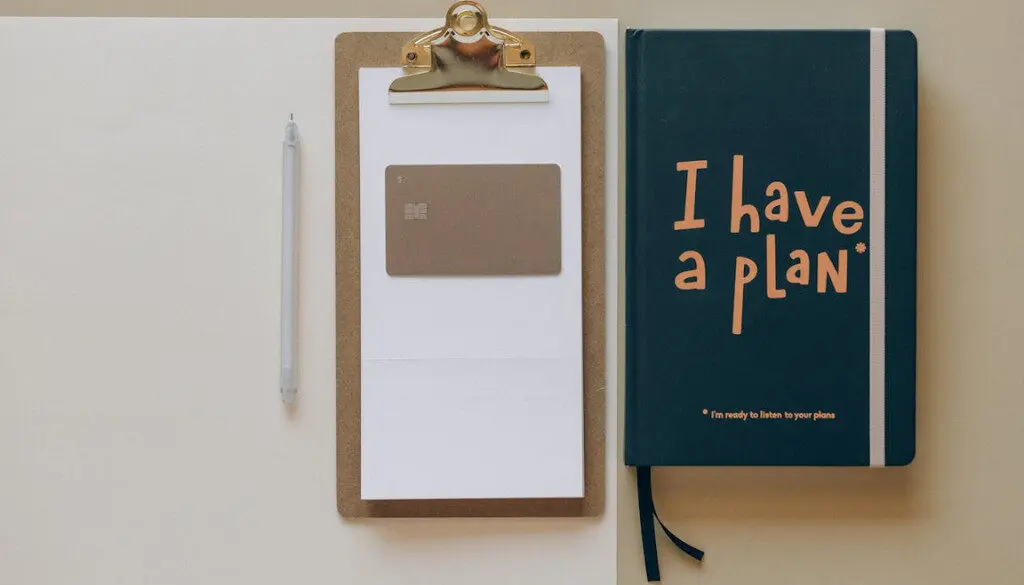Managing your finances well is key to financial stability. I’ve learned that sorting your expenses into budget categories is essential. This way, you can see where your money goes and make smart spending choices.

Good financial planning is more than just tracking your spending. It’s about planning how to use your resources wisely. By focusing on what’s important and making thoughtful financial choices, you can reach your financial goals.
Key Takeaways
- Effective financial management starts with categorizing expenses.
- Prioritizing spending is key to financial stability.
- A well-planned budget helps in making informed financial decisions.
- Categorizing expenses helps in finding ways to save money.
- Strategic financial planning is vital for long-term goals.
Why Categorizing Your Finances Changes Everything
Effective budgeting starts with categorizing your finances. This simple step can change how you manage money. It helps you see where your money goes, making it easier to control your spending.
The Psychology Behind Successful Budgeting
Putting your expenses into budgeting categories can reduce financial stress. It lets you focus on what’s important, making smart choices about your budget allocation. This approach helps you understand your spending habits, leading to better financial health.
My Financial Transformation Through Categorization
Organizing my expenses into financial categories changed my financial life. It showed me where I was spending too much and helped me cut back. This small change had a big impact on my financial stability.
Housing Expenses: Your Budget’s Foundation
Managing housing expenses is key to a stable financial life. Housing costs are often the biggest expense for most people. They can greatly affect how much you can save and invest.
Mortgage or Rent: Optimizing Your Largest Expense
Whether you’re paying a mortgage or rent, it’s important to manage it well. Look into refinancing your mortgage for a better interest rate. Or, try to negotiate your rent if you can.
Consider getting a shorter mortgage term. This can save you money over time.
Utilities: Water, Electricity, and Internet
Utilities are a big part of housing costs. Simple steps like using energy-efficient appliances can cut costs. Also, being careful with water usage helps.
Shopping around for the best internet and electricity plans can save a lot of money too.
Home Maintenance and Repairs
Regular home maintenance is vital to avoid expensive repairs later. Budget for routine upkeep like plumbing and HVAC maintenance. This can prevent unexpected costs.
Setting aside a small amount each month for maintenance can really help.
Food and Groceries: Strategic Spending on Necessities
Spending wisely on food and groceries can save a lot of money. I’ve learned that planning and being disciplined are essential.
Weekly Grocery Shopping Plans
Having a weekly grocery plan stops impulse buys and keeps focus on what’s needed. I make a list for the week’s meals, buying only what I need.
- Plan meals around what’s on sale
- Use coupons for non-perishable items
- Buy in bulk to save on staples
Dining Out: Balancing Convenience and Cost
Dining out can be pricey, but it’s not a total no-go. I set a budget for eating out and stick to it.
For example, setting aside $50 a week for dining out helps enjoy meals out without overspending.
Meal Prepping for Financial Success
Meal prepping has been a game-changer for me. It cuts down on food waste and saves on last-minute, pricey meals.
- Plan your meals for the week
- Shop for ingredients in bulk
- Prepare meals that can be refrigerated or frozen
These strategies have helped me manage my food and grocery costs well. They’ve played a big part in my financial stability.
Transportation Costs: Moving Through Life Affordably
As I looked at my finances, I saw that transportation costs were a big part. It was key to manage these costs well to keep my budget balanced.
Vehicle Payments and Ownership Costs
Vehicle payments are a big expense. Whether it’s a new car or paying off a loan, these costs add up. I learned to think about the total cost, including depreciation and resale value.
Fuel, Parking, and Public Transit
Fuel costs are high, but there are ways to lower them. Planning trips, carpooling, and keeping my car in good shape help. Using public transit or biking for short trips also saves money.
Auto Insurance and Registration
Auto insurance is a must, but you can save by comparing rates. I also check my policy every year to make sure I’m not over-insured. Registration fees are another cost to include in your budget.
By looking at transportation costs in these ways, I’ve made my daily commute cheaper. I didn’t have to give up convenience either.
Healthcare: Investing in Your Wellbeing
Managing healthcare costs is key to a secure financial future. As I plan my finances, I see how healthcare expenses are a big part of budgeting.
Healthcare costs include many things like health insurance, prescription drugs, and emergency medical bills. Knowing these areas helps with better financial planning.
Health Insurance Premiums and Coverage
Health insurance is a big part of healthcare spending. Premiums change based on coverage and provider. It’s important to check my policy every year for the best deal.
Prescription Medications and Regular Care
Managing prescription costs is important. Using generics and refilling at the same time can save money. Regular check-ups and screenings are also key for staying healthy.
Medical Emergency Planning
Planning for emergencies is a big part of healthcare planning. Having an emergency fund helps with unexpected medical bills. I try to save 3-6 months’ worth of expenses for emergencies.
| Healthcare Category | Average Annual Cost | Tips for Management |
|---|---|---|
| Health Insurance Premiums | $5,000 – $15,000 | Review policy annually, consider group plans |
| Prescription Medications | $500 – $2,000 | Use generics, synchronize refills |
| Medical Emergencies | Varies | Build an emergency fund |
As “The doctor of the future will no longer treat the human frame, but the human being in its entirety.” – Albert Schweitzer. This quote shows the importance of holistic healthcare, including financial planning.
By understanding and managing healthcare costs, I can invest in my wellbeing and secure my financial future.
Debt Repayment: Your Path to Financial Freedom
Debt repayment is key to financial freedom. It’s important to have a clear plan. By paying off debt, you free up money for savings, investments, and goals.
Managing debt means knowing your debts and which to tackle first. This is where specific strategies come in.
Credit Card Debt Strategies
Credit card debt is tough because of high interest. You can use the snowball or avalanche method. The snowball method pays off small balances first. The avalanche method targets high-interest cards.
Student Loans and Personal Debt
For student and personal debt, knowing your options is vital. This could be income-driven plans for student loans or consolidating personal debt into a lower-interest loan.
Creating a Debt Elimination Timeline
Setting a realistic timeline is essential. Figure out how much you can pay each month and stick to it. Adjusting your timeline as needed keeps you on track.

By using these strategies and staying committed, you can make big strides towards being debt-free.
Essential Budget Categories for Financial Security
To secure your financial future, it’s key to know and manage the main budget categories. Financial security is more than saving money. It’s about making smart choices that protect and grow your wealth over time. Looking back, I see how important it is to focus on long-term benefits.
Retirement Accounts and Investments
Retirement accounts and investments are a critical part of financial security. Putting a part of your income into a 401(k) or IRA can greatly improve your financial stability later on. As Warren Buffett said, “Someone’s sitting in the shade today because someone planted a tree a long time ago.” Investing in your retirement is like planting that tree.
Starting early and being consistent can help your retirement savings grow. It’s important to choose your investments wisely and maybe talk to a financial advisor for advice.
Emergency Fund: My 3-6 Month Safety Net
Building an emergency fund is another key category. Having 3-6 months’ worth of expenses saved can be a lifesaver during unexpected times, like job loss or medical emergencies. This fund helps you avoid debt when unexpected costs come up.
Looking back, my emergency fund has given me peace of mind. It has helped me deal with financial challenges without too much stress. It’s a key part of achieving financial security.
Insurance Policies: Life, Disability, and Property
Insurance policies, like life, disability, and property insurance, are also vital for financial security. These policies protect you and your loved ones from financial trouble in case of illness, injury, or property damage.
For example, life insurance can make sure your family’s financial needs are met even if you’re not there. Disability insurance can replace your income if you can’t work because of illness or injury. Property insurance protects your assets from damage or loss.
“The biggest investment you can make is in yourself and your financial security.” This quote, though its source is unknown, really hits home. It shows how important it is to focus on your financial well-being.
Entertainment and Leisure: Enjoying Life Within Limits
As I worked on my finances, I learned that entertainment and leisure are key. It’s important to find a balance between enjoying life and staying within budget. This balance is key for long-term financial health.
Subscription Services Audit
Managing entertainment costs means checking subscription services. This includes streaming, software, and memberships. I regularly check these to avoid wasting money on unused or redundant subscriptions.
Hobbies and Recreation Spending
Hobbies and recreation are important for a balanced life. I focus on hobbies that bring me joy and look for cheaper alternatives. For example, I choose outdoor activities or home workouts over expensive gym memberships.
Travel and Vacation Budgeting
Travel and vacations are big leisure expenses. I save a set amount each month for travel. Planning trips during off-peak seasons and using travel rewards credit cards also cuts costs.
Personal Care and Clothing: Looking Good on a Budget
It’s possible to look great without spending a lot on personal care and clothing. You just need to plan well, shop smart, and get creative.

Wardrobe Planning and Shopping Strategies
Start by checking what you already have and what you need. Then, look for quality clothes at good prices. Use sales and coupons to save even more.
| Strategy | Description | Benefit |
|---|---|---|
| Wardrobe Audit | Assess current clothing | Identify gaps |
| Shopping List | Make a list of essentials | Stay focused |
| Sale Shopping | Look for quality pieces at sale prices | Save money |
Personal Care Services and Products
When it comes to personal care, find a balance. Choose affordable haircuts and skincare without sacrificing quality.
Quality vs. Quantity in Personal Spending
Buying quality items that last longer is often cheaper in the long run. For example, a better product might cost more upfront but save you money over time.
By using these tips, you can look great without spending too much.
Gifts and Charitable Giving: Planned Generosity
As I plan my finances, I see how important it is to budget for gifts and charity. Being generous is a big part of me, but it shouldn’t hurt my wallet. By planning, I can give without spending too much.
Setting aside money for holidays and special times is key. This way, I’m ready when birthdays or holidays come. Putting aside a set amount each month keeps me on track.
Holiday and Special Occasion Funds
Having a special fund for holidays and events helps manage my spending. I choose how much to save based on my budget and who I need to buy for. This stops me from making expensive, last-minute buys.
Charitable Contributions
Charity is a big part of my financial planning too. I look for groups that match my values and set a donation budget. This way, I support causes I care about without risking my money.
Family Support and Giving
Helping out family or friends in need is also part of my plan. Whether it’s for school or tough times, I’m there for them. Budgeting for these helps me give without hurting my finances.
Miscellaneous Budget Categories That Matter
There are many budget categories that go beyond the usual expenses. These often-overlooked areas can add up quickly. It’s important to include them in your financial plan.
Pet Care and Expenses
Pets are like family to many of us. Their care can be a big expense. This includes food, vet bills, grooming, and supplies. I set aside a part of my budget for my pets’ needs.
Technology Replacement and Upgrades
Keeping up with the latest technology can be expensive. This includes replacing old devices and upgrading software. I budget for these upgrades to stay current and competitive.
| Category | Annual Cost | Monthly Allocation |
|---|---|---|
| Device Upgrades | $1,000 | $83 |
| Software Subscriptions | $500 | $42 |
Professional Development and Education
Investing in your career is key. This includes attending conferences, taking online courses, and getting certifications. These expenses help you stay ahead in your field. I make sure to budget for these activities.
By considering these categories, you can make a more complete financial plan. This plan will help you with unexpected expenses and support your long-term goals.
Conclusion: Creating Your Personalized Budget Category System
Managing your money well means making a budget that fits you. By sorting out your spending, you can make a personalized budget that meets your financial dreams.
Looking at your spending and grouping it is key. It shows you where you can tweak things to get financially stable. A good budget category system helps you make smart choices with your cash.
Good financial planning means checking your budget often and tweaking it as needed. This way, you can handle money problems better and reach your goals.
Using these tips, you can manage your finances better and get closer to financial stability. Begin making your personalized budget today and see your financial health get better.






